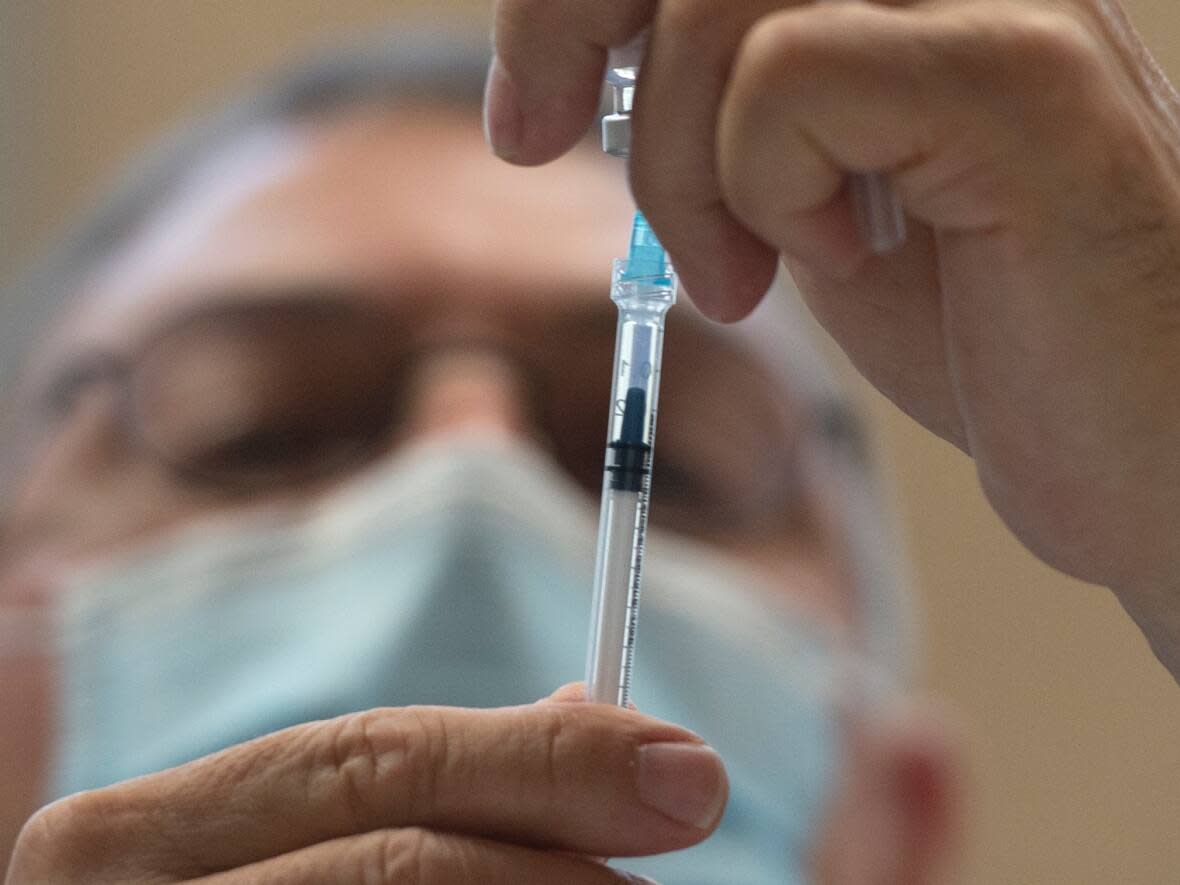Did you get your fall COVID-19 booster dose? Then you're all set — for now, says N.B.

New Brunswickers who received a COVID-19 booster dose in the fall might be wondering what to do next, given that the recommended interval between doses has been five months.
But the Department of Health says no further doses are recommended at this time.
People who received a fall dose — whether it was a bivalent product or a traditional monovalent product — are considered up to date, said spokesperson Adam Bowie.
"To be fully vaccinated and up to date, Public Health recommends that you complete all doses in your primary series and get one fall/winter booster dose with an mRNA vaccine. An mRNA bivalent vaccine is the preferred product for a fall/winter booster dose," he said in an emailed statement.
"As the pandemic is transitioning, we expect further COVID-19 vaccine recommendations from the National Advisory Committee on Immunization (NACI) this year," Bowie said.
Evolution of pandemic uncertain
Last month, NACI said it's unclear when the need for additional booster doses will arise, or to whom booster doses should be offered, given the "inherent uncertainties around the evolution of the pandemic."
"NACI will continue to monitor the evidence, including SARS-CoV-2 epidemiology and duration of vaccine protection, particularly with regard to severe outcomes, in the coming months to provide recommendations on the timing of subsequent booster doses if warranted," the Jan. 20 guidance said.
Future booster dose decisions should also consider "ethics, equity, and acceptability of future booster dose recommendations in addition to feasibility considerations of delivering booster dose campaigns," it said.
In the meantime, NACI reinforced its previous recommendations on fall boosters. It strongly recommended all adults 65 years of age and older, and everyone aged five to 64 who is at increased risk of severe illness from COVID-19, should have received a booster dose since the start of fall 2022, with a six-month interval between doses.
In addition, a booster dose "may be offered" to people aged five to 64 years of age without risk factors for severe illness from COVID-19 if they haven't received one since the start of fall 2022, the advisory body said.
The Department of Health will continue to review NACI's recommendations and communicate COVID-19 vaccine updates as it gets more information, the spokesperson said.
As of Tuesday, only 30 per cent of eligible New Brunswickers have received a second booster. It's unclear how many of those were administered since the fall or how many were bivalent doses, designed to target the dominant Omicron variants, as well as the original coronavirus.
New Brunswick approved second boosters for people aged 18 and older in July and bivalent boosters for people aged 18 and older in October.
There were 892 COVID-19 vaccine doses administered in the past week, including 64 first doses, 58 second doses, 156 first booster doses, and 614 second booster doses, according to figures from the department.
A total of 90.9 per cent of eligible New Brunswickers have received their first dose (unchanged), 85.8 per cent have received their second dose (unchanged), and 54.7 per cent have received their first booster (up from 54.6 per cent).


